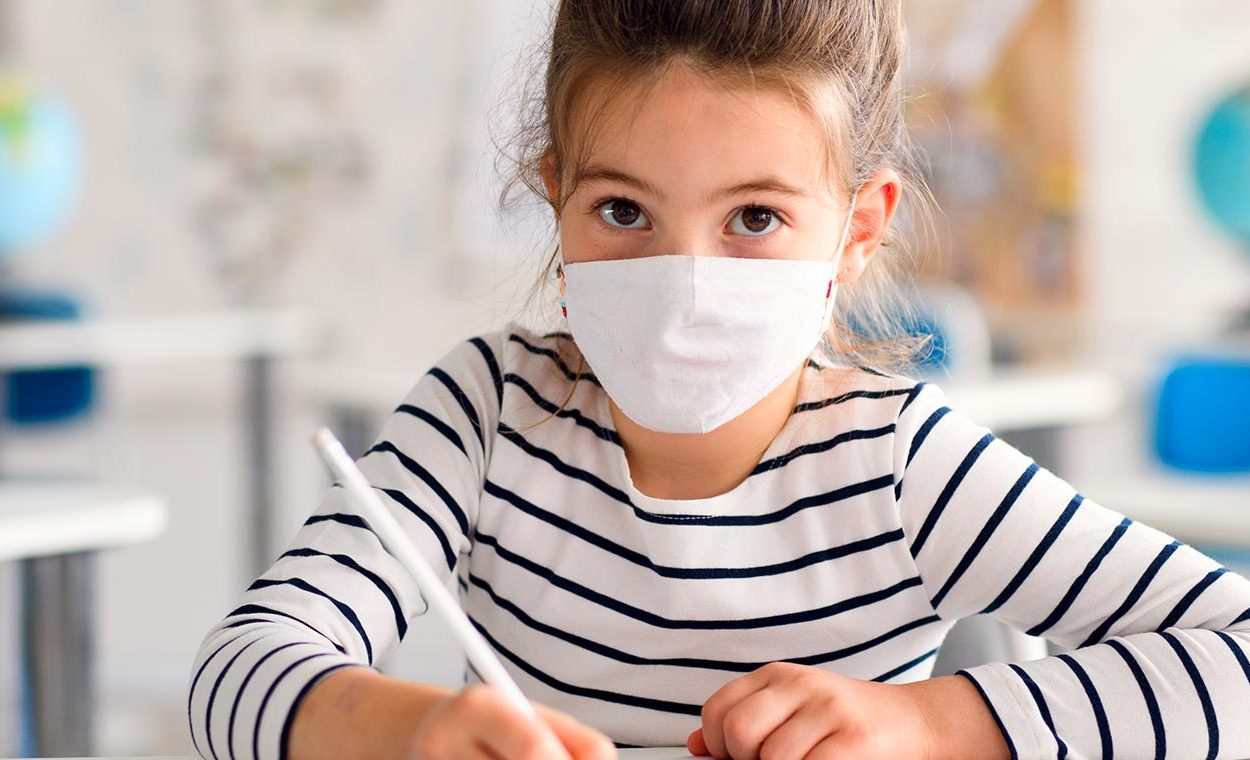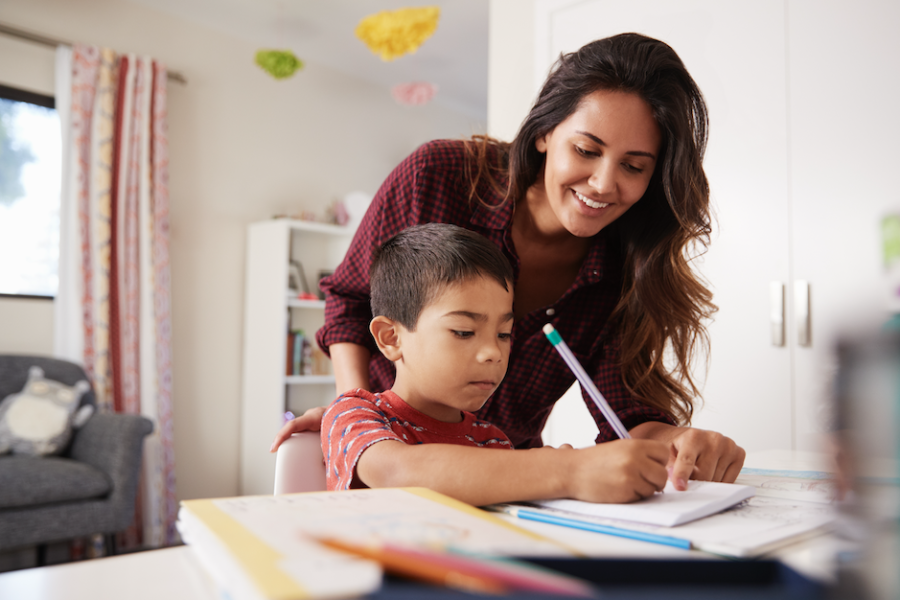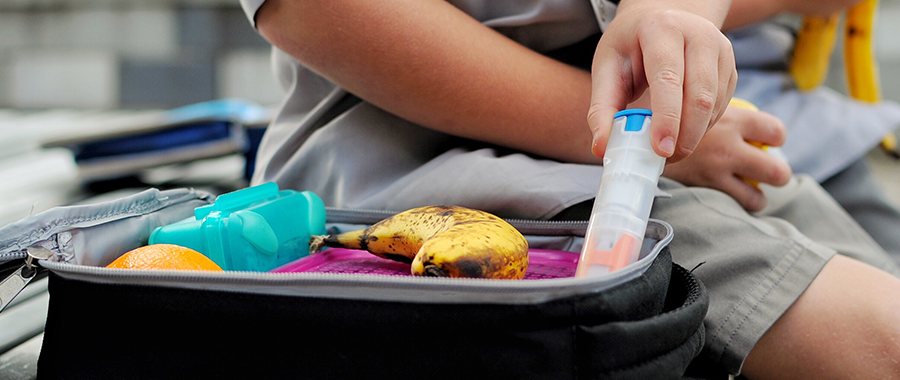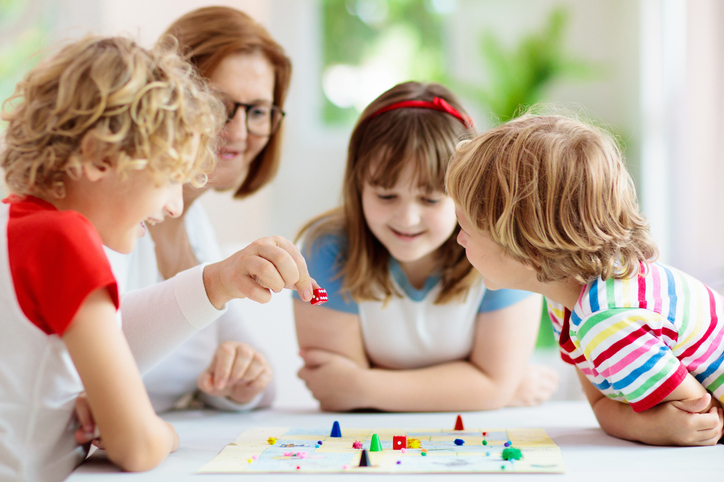Is your child struggling with confinement during the pandemic? Here are some practical tips to help your child navigate this difficult time.

How to support your child during a pandemic and confinement
The COVID-19 pandemic is affecting us all, including our children. Even if our children do not fully understand the situation, they undoubtedly sense our concerns and experience the changes in our day-to-day lives.
Children experience the pandemic differently according to their age. How can you support them in dealing with the situation? Here are some practical tips.

STABILITY | Stability is of the utmost importance. With the addition of virtual learning and working, confinement, and all the pandemic changes we have brought to our lives, it can be easy to let everything go. While adults may be able to handle that, it is harder for our children to gauge everyday life without the structure and stability of a routine.
Set A Schedule. Create a schedule for your child that includes a specific time for chores, homework, naptimes, playtime, family time, etc. Include your child in the creation of such, and in doing so, they will be more willing to take part, knowing you appreciate their input. Post the schedule in plain sight where everyone can reference it.
Be Consistent in Your Discipline. Do not fluctuate in your manner of discipline during the pandemic. It’s a matter of stability for your child. While our daily habits may be different than before, your manner of correcting your children should remain the same. You are their constant, and they need to know that you have not changed.
OPEN COMMUNICATION | Talk to your children about the realities of the pandemic, especially in the ways that it affects them. Children receive mixed information in abundance through tv, online, from adults and friends, etc. However, very rarely do they get the full story or fully understand what they are hearing. The responsibility falls on you as the parent to interpret the information in a way that they can process it.
Appropriate Explanations. Explain the virus in a way that they will understand, according to their age and personality. Keep it simple. Use reliable resources at your disposal, like My Name is Coronavirus, created by Manuela Molina from Child Development Center.org.
Filter the News. Make it a habit of watching the news before bed once your child is asleep. If there are any changes or events worthwhile, you will be prepared to explain it to them in the morning, in a way which they will understand.
Teach Them Good Hygiene. Teach your children the hygiene techniques in a fun delivery, whether it be a song while washing their hands or a game that helps them understand social distancing.
Approach COVID Like an Adventure. For older kids, present the situation like an adventure that will help them learn new things and grow in maturity.
Be Honest. While you may need to filter the information you provide your children, be sure not to conceal the truth and answer any questions they might have. If they ask you how long it will go on, you can tell them you don’t know. Emphasize positive aspects, like spending more time together as a family. Remind them that the scientists and doctors are hard at work, trying to help get things back to normal as soon as possible. You can also help them focus on the fact that when we each do our part to obey the guidelines, we too are helping get things back to normal.
CONTROLLING EMOTIONS | It’s equally important for us as well as our children to learn to manage and process our emotions. The pandemic and confinement have caused increased anxiety, even among those who’ve never faced it before. It is crucial that we all learn to face our emotions head-on, without allowing them to get the better of us.
Limit News. While it is important to remain informed about the situation, no good will come from watching the news every day or keeping track of how many new cases are reported each day. In fact, only harm can come from exposing ourselves to that much news, and most usually, it’s in the form of increased anxiety. Try and limit yourself to watching the news one or two times a week. It will be sufficient to have the latest information and will allow you to focus on something more positive and healthful.
Take Time for Yourself. Make sure to reserve some time for yourself to vent your anxieties and release your stress. Call a friend, exercise, whatever works best for you to decompress. Your children absorb your attitude and stress, so it is important to stay calm and poised, doing your best not to project your stress onto them.
Create an Opportunity for Discussion. Whether it’s at the dinner table or another moment during the day, take the opportunity for each one to discuss their day. Ask your children simple questions to help them get started. Suggest journaling to your older children. Always finish on a positive note, allowing each family member to name one thing they are grateful for. Do your best to avoid letting the pandemic overrun your discussions.
Listen to Your Children. When your children express themselves, listen. Listen attentively to what they say and do not undermine their feelings. Is your adolescent discouraged because they miss the way school used to be? Don’t be quick to tell them to stop complaining because others are suffering far worse things. Put yourself in their shoes. At the age of 15 or 16, they are losing out on a pivotal year of experiences. For them, it truly feels like the end of the world. Be compassionate and understanding, reassuring them that you are always there to listen.
CREATE OPPORTUNITIES | Create opportunities to unwind, socialize and have fun. It’s essential for young ones to take the time to have fun with others and talk with friends and family.
Games and Exercise. Make sure you have ample time to get outside as a family, find ways to exercise and play games together. You can even set specific days and times in the week; surely the whole family will look forward to those moments.
Video Conference. Ensure you have access to video chat and set aside time for each member of the family to chat with friends or family.
Find Fun in Daily Tasks. Look for ways to have fun daily, even in simple ways. Sing while you cook together, dance while you sweep, etc. These little moments can brighten your day, as well as your child’s.
Walk with Friends. When permitted, organize a walk in a park or trail with your children and their friends.
THE KEY IS STAYING POSITIVE | The pandemic is difficult for us all. We must stay vigilant and respect the rules of social distancing and confinement. The key to success is making sure that we and our children remain positive. We need to do our best amid the situation and remind ourselves that this too shall pass.






